Search Our Whole site:
Just Search: Africa
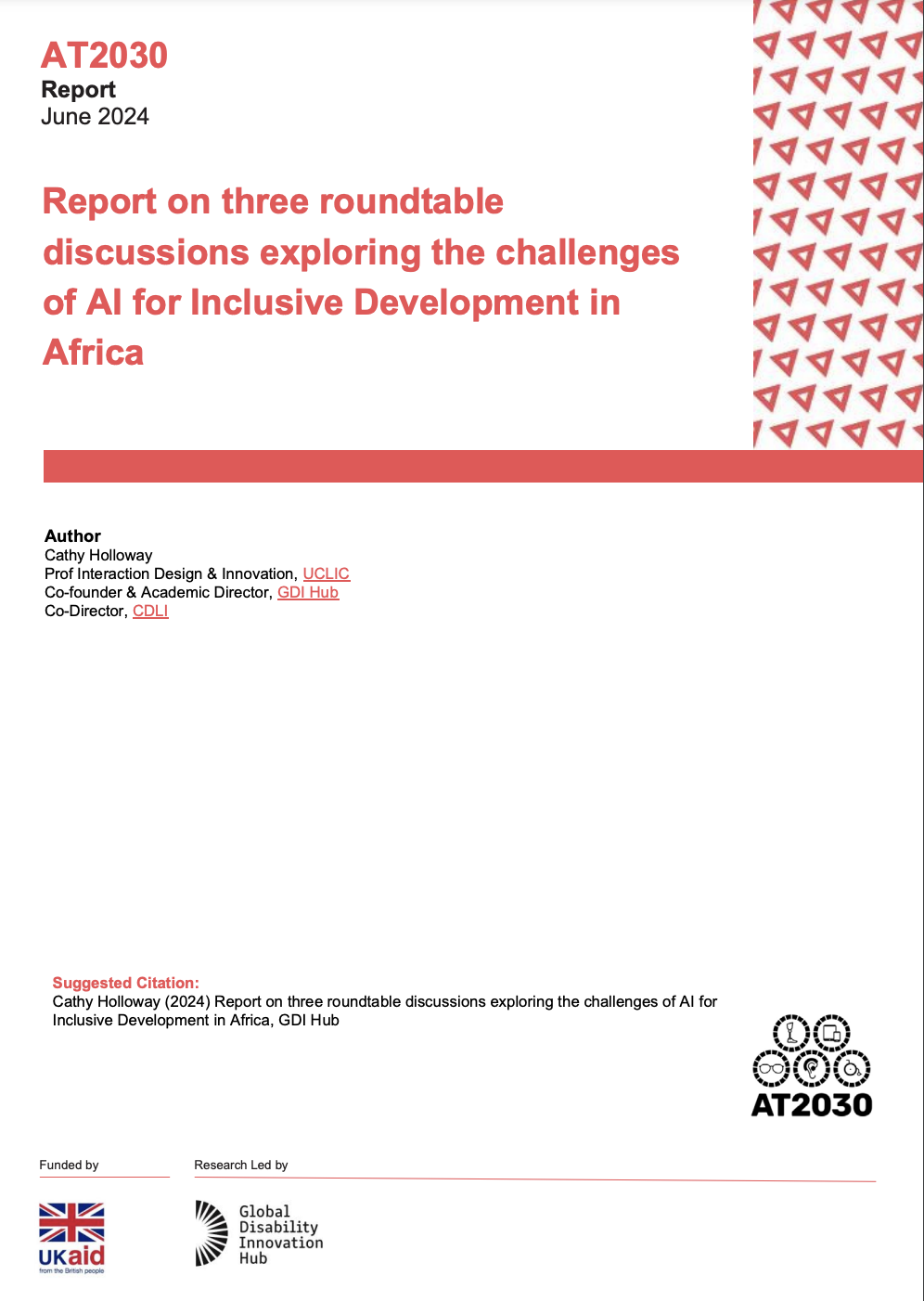
AI for Disability Inclusion in Africa
This report summarises the opportunities, challenges and enablers for disability-inclusive AI in Africa and key research questions that were identified in three online roundtables held in February, March and April 2024. The roundtables were convened and hosted by UCL’s Global Disability Innovation Hub (GDI Hub) at the request of the Foreign, Commonwealth and Development Office (FCDO).
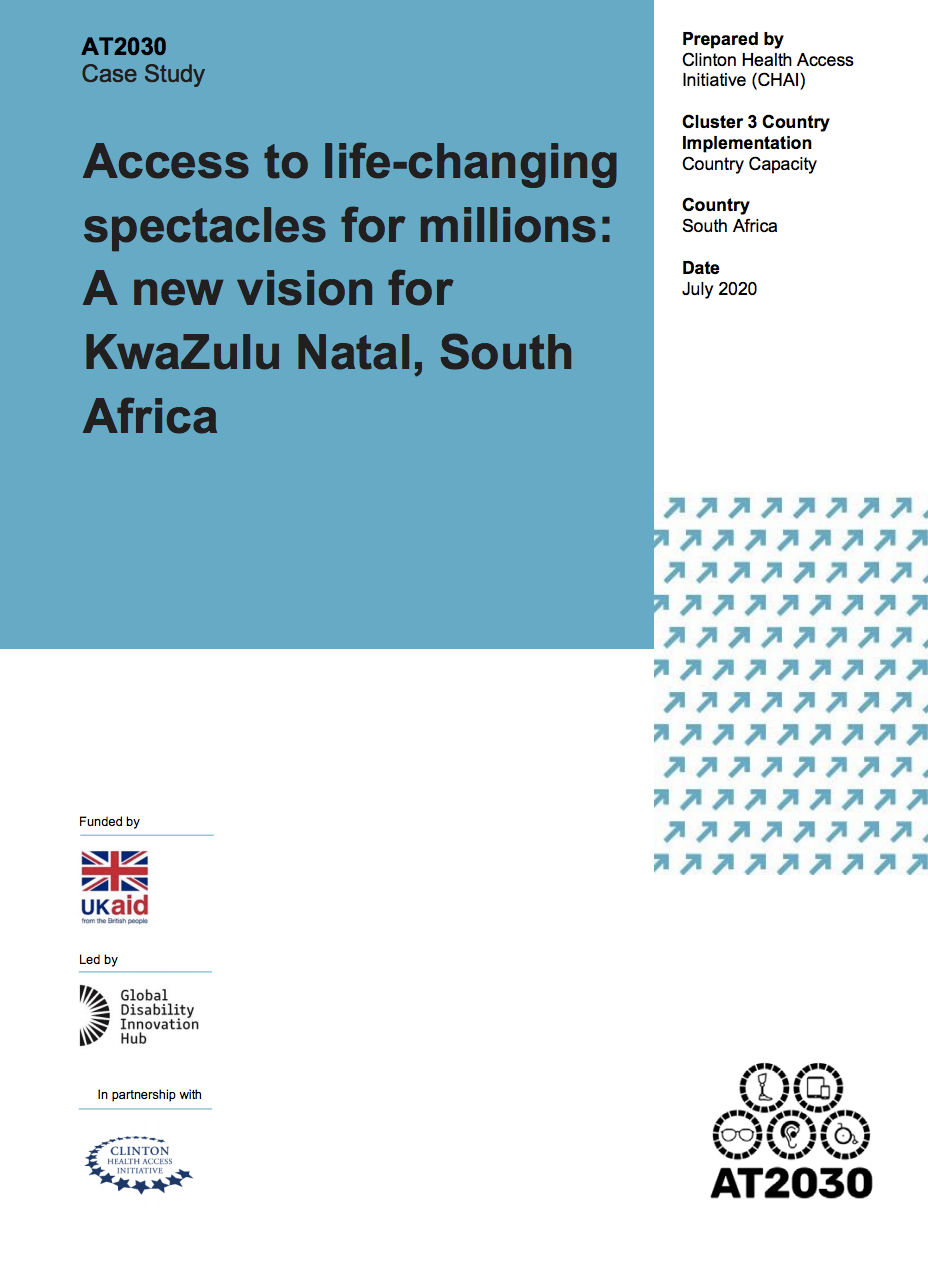
Access to life changing spectacles for millions. A new vision for KwaZulu Natal, South Africa
The publication gives an overview of the challenge, what works and next steps. Under Cluster 3: Country Implementation of the AT2030 programme, CHAI is partnering with country governments to identify opportunities to drive availability and affordability of AT.
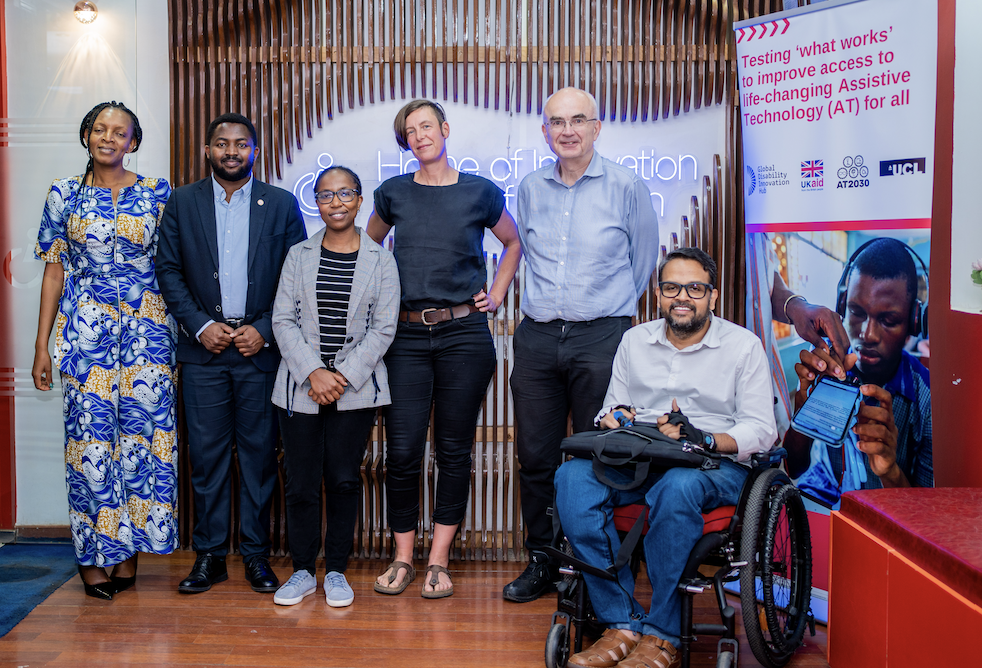
Landmark Gathering to Accelerate Assistive Technology Innovation Across Africa
At the sidelines of Inclusove Africa conference, a new era for Africa’s assistive technology (AT) ecosystem began began at the “Accelerating Impact: Shaping the Next Wave of Assistive Technology Innovation in Africa
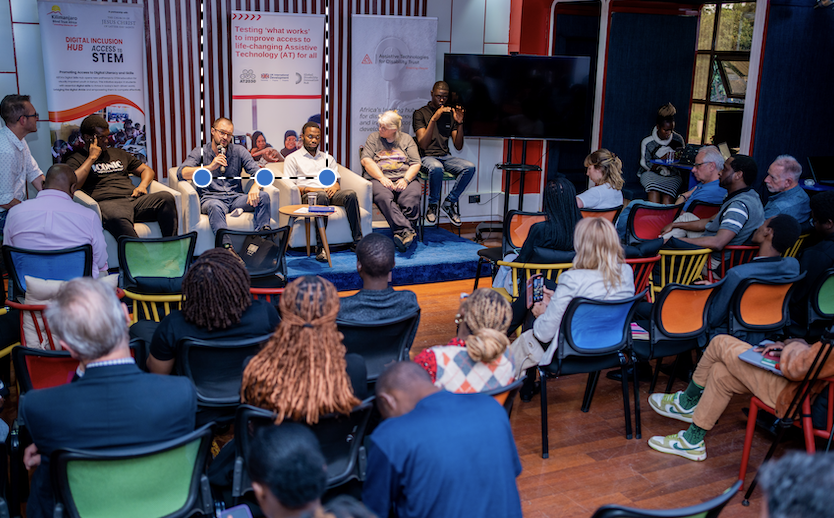
Next Wave of Assistive Technology Innovation in Africa
Africa’s assistive technology (AT) ecosystem stands at a crucial inflection point, as innovation, policy, and investment converge to drive forward inclusive solutions. On Friday, 6 June 2025, Assitive Technologies for Disability Trust together with the Global Disability Innovation Hub (GDI Hub), Kilimanjario Blind Trust Africa (KBTA), Senses Hub and the Innovate Now Accelerator will host “Accelerating Impact: Shaping the Next Wave of Assistive Technology Innovation in Africa” at Senses Hub in Nairobi
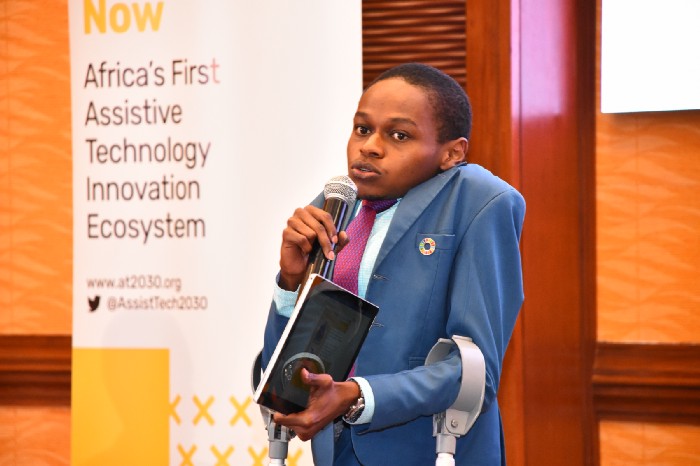
Celebrating Inspirational Entrepreneurs Building Tech that Matters for Africa
Bernard presents an overview of the innovations and teams that were part of the first cohort of Innovate Now, Africa's first Assistive Tech Accelerator.
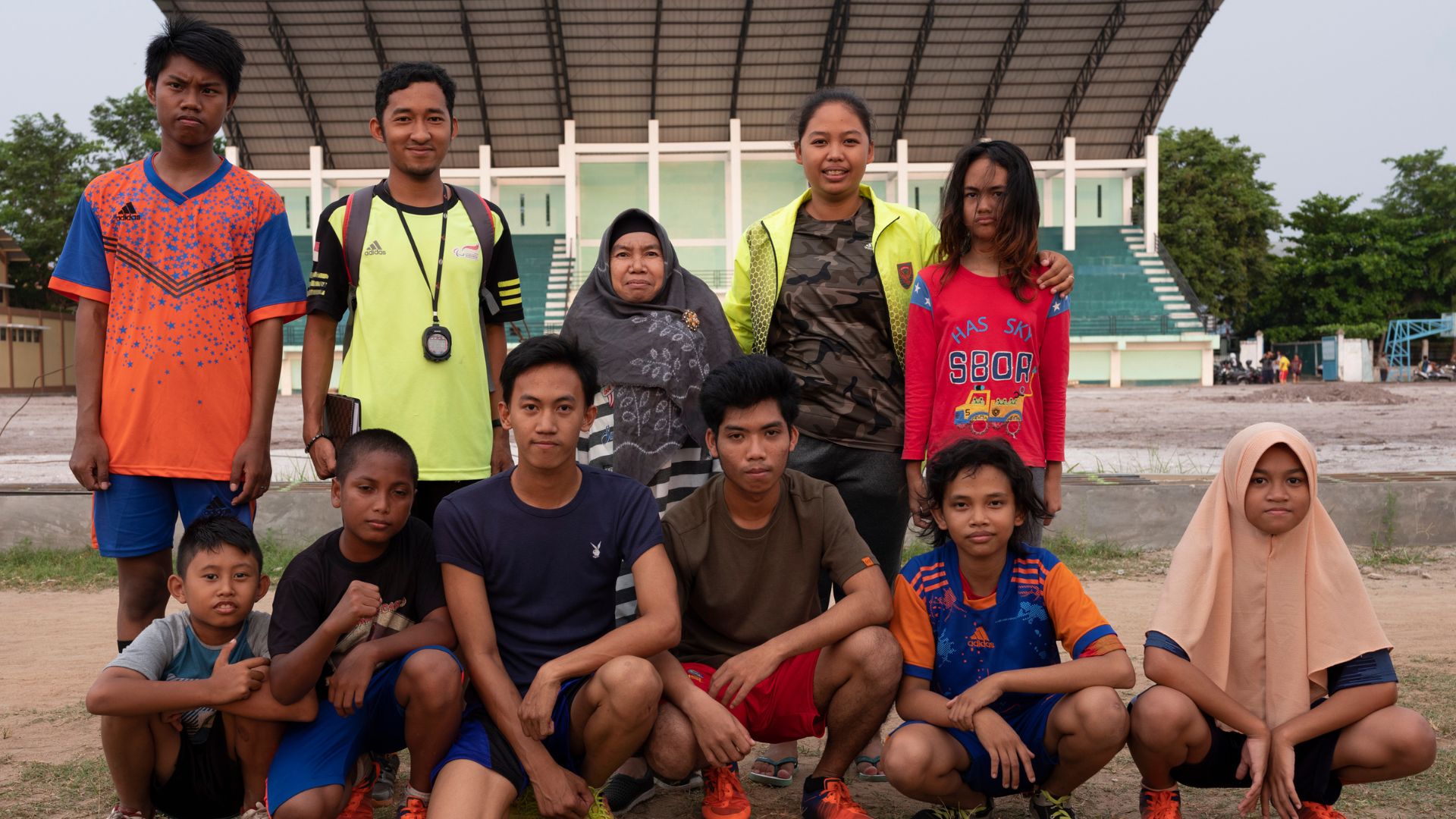
Paralympic Broadcasting in Sub-Saharan Africa: Sport, Media and Communication for Social Change
Tokyo 2020 was boardcast to 49 territories across Sub-Saharan Africa. This commentry explores a historic moment in the development and expansion of Paralympic broadcasting and is at the same time an example of how Paralympic media is being harnessed as a pedagogical force and instigator for disability development agendas in Sub-Saharan Africa.
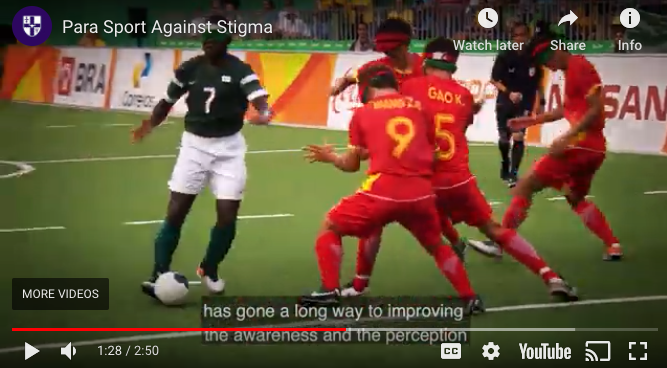
IPC to provide free to air coverage of Toyko 2020 Paralympic Games in Sub-Saharan Africa thanks to support from UK Aid
This broadcast initiative is a key element of the Para Sport Against Stigma project between the IPC, Loughborough University, and the University of Malawi, Chancellor College, which aims to support social change and overcome stigma and discrimination against persons with disabilities in Africa. Para Sport Against Stigma is part of AT2030, a programme funded by UK Aid and led by the Global Disability Innovation Hub.
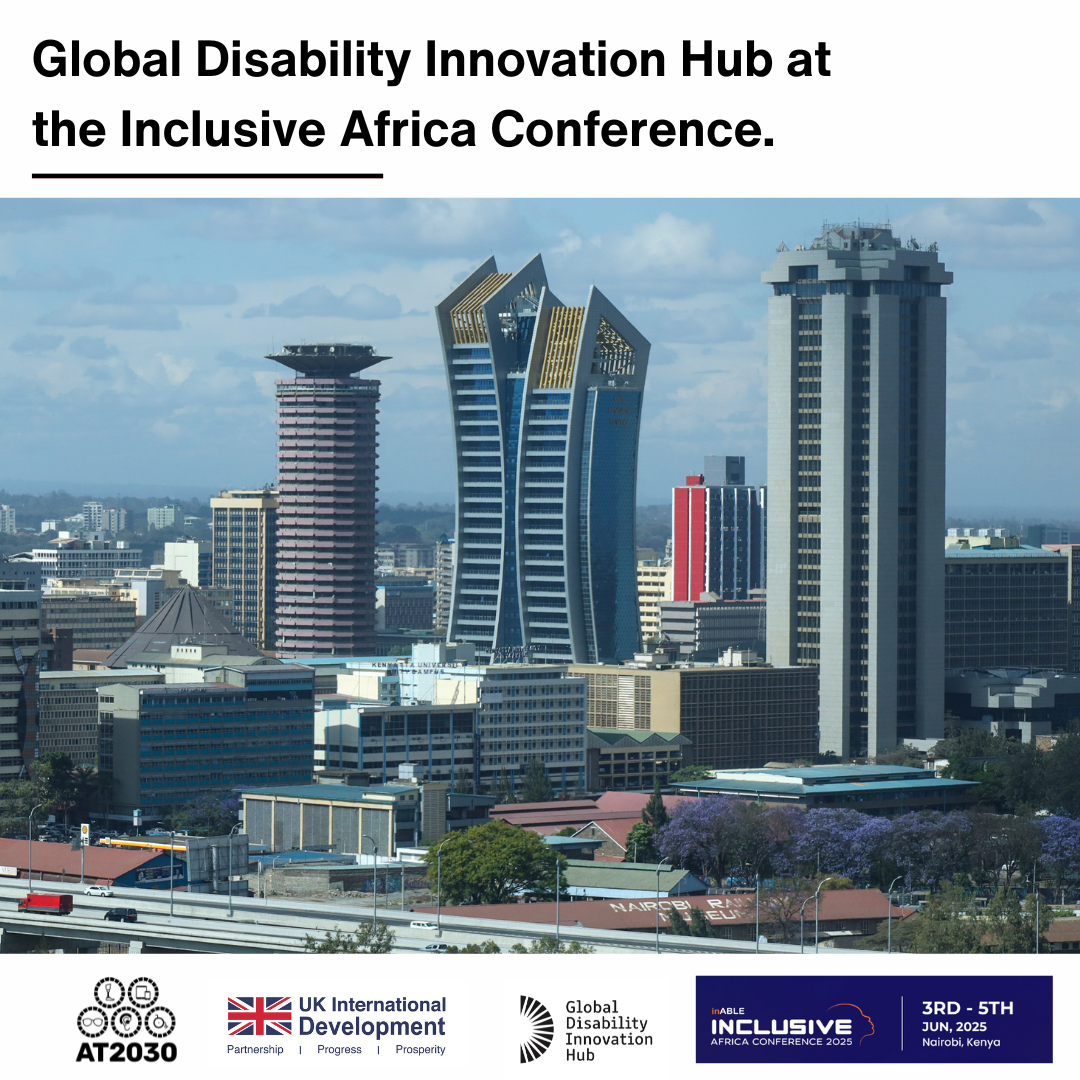
GDI Hub at Inclusive Africa 2025
The Global Disability Innovation Hub (GDI Hub) is proud to be participating in the upcoming Inclusive Africa Conference 2025, a leading regional platform advancing digital accessibility, assistive technology (AT), and disability inclusion across the continent. Taking place in Nairobi, Kenya, from June 3rd to 6th, this year’s conference promises dynamic conversations, collaborative learning, and bold innovations aimed at unlocking inclusion through technology. GDI Hub will lead and contribute to a series of impactful sessions throughout the week, spotlighting the role of inclusive ecosystems, OPD (Organisations of Persons with Disabilities) capacity-building, and locally driven innovation.
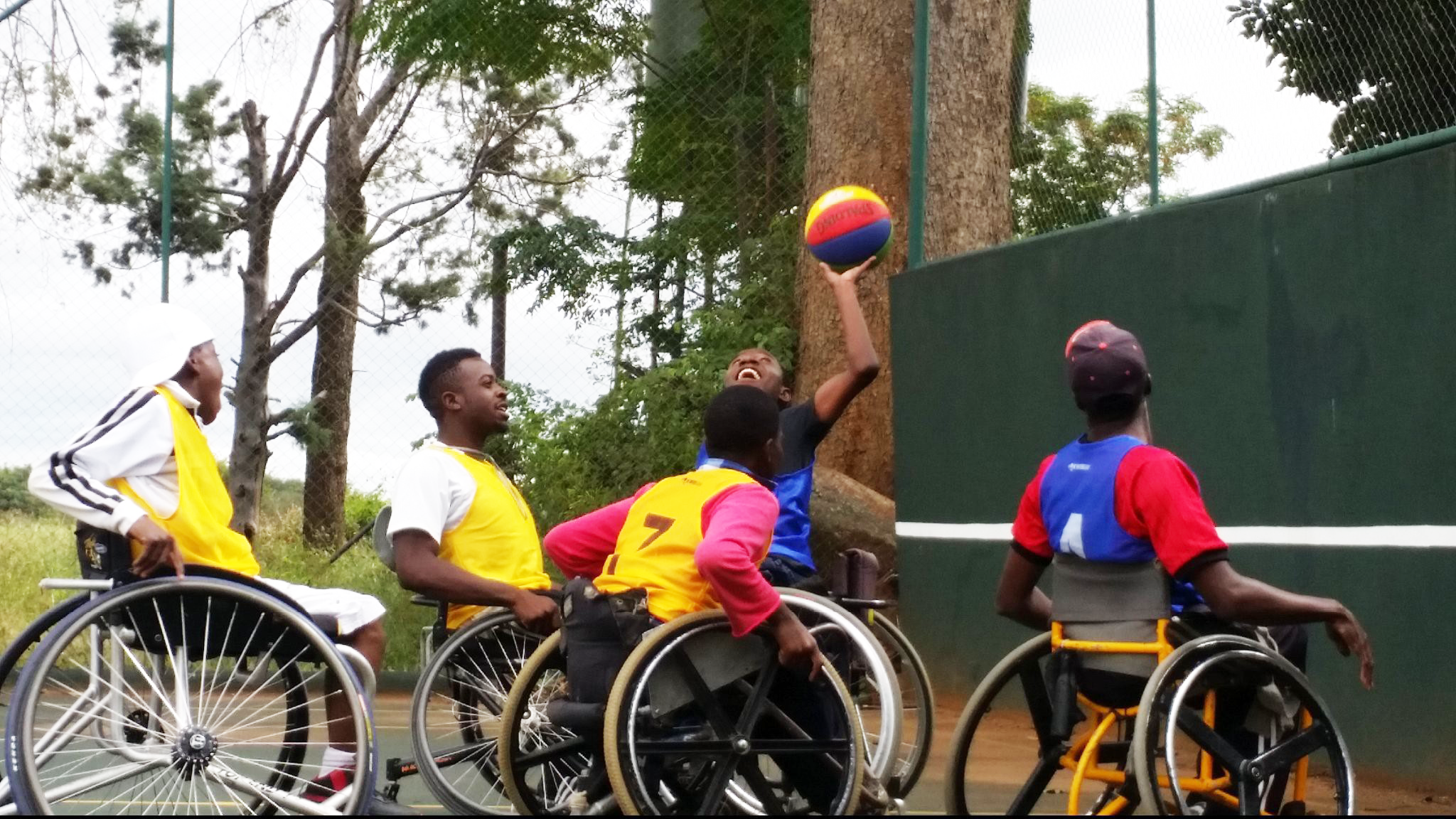
Can Paralympic sport break down barriers to assistive technology use in Africa?
In this blog, Nyasha Mharakurwa, a wheelchair tennis player and London 2012 Paralympian from Zimbabwe, Stacy Konadu Mensah, a wheelchair tennis player from Ghana, and Patrick Yaw Obeng, a para-athlete from Ghana share their reflections and experiences of barriers to assistive technology access and how Para sports can help break down these barriers for disabled people in Africa.
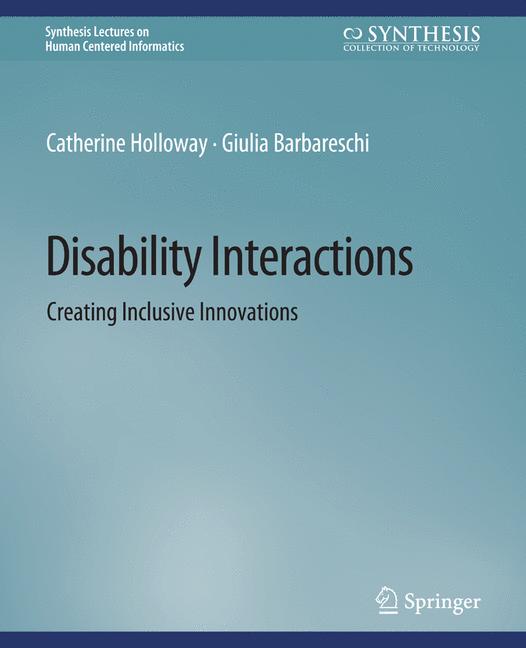
Case Study: Enabling Access to Quality, Inclusive Education for Learners with Visual Impairment in Africa
Case Study: Enabling Access to Quality, Inclusive Education for Learners with Visual Impairment in Africa. Excerpted from Disability Interactions: Creating Inclusive Innovations by Catherine Holloway and Giulia Barbareschi.
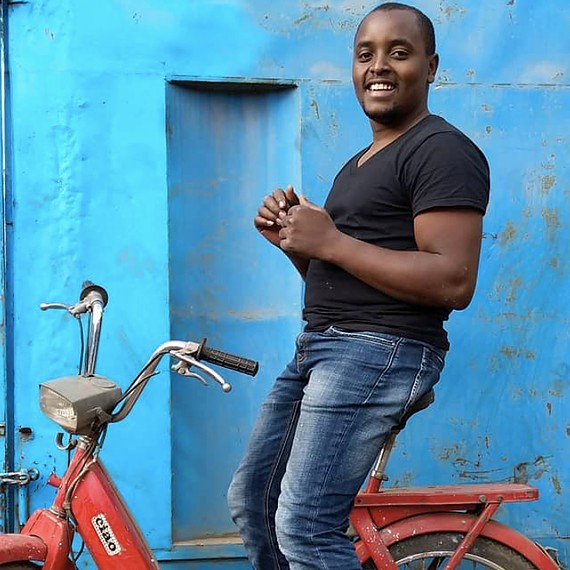
Innovate Now, Africa’s first Assistive Technology Accelerator announces KES2M Prize for First Winner
Innovate Now has selected its first winner as part of the Global Disability Innovation Hub’s Assistive Technology AT2030 Programme

Research Report on the Tokyo 2020 Broadcasting in Sub-Saharan Africa
The AT2030 Para Sport Against Stigma project aimed to examine how disability stigma can be overcome through Para sport so to increase assistive technology (AT) adoption in Africa. The project centred on a four-pillar approach: education, athlete development, Paralympic broadcast and cross-cutting research activity. The research provided important knowledge on: (a) the successes and challenges in the development and distribution of the Paralympic Tokyo 2020 highlights package; (b) audience experiences of watching the Paralympic highlights package; and (c) the cultural impact of the broadcast on disability stigma reduction and the reduction of barriers to AT adoption.

Paralympic Broadcasting in Sub-Saharan Africa: Sport, Media and Communication for Social Change
This research summary provides key highlights and snapshot content from the research paper, Paralympic Broadcasting in Sub-Saharan Africa: Sport, Media and Communication for Social Change.
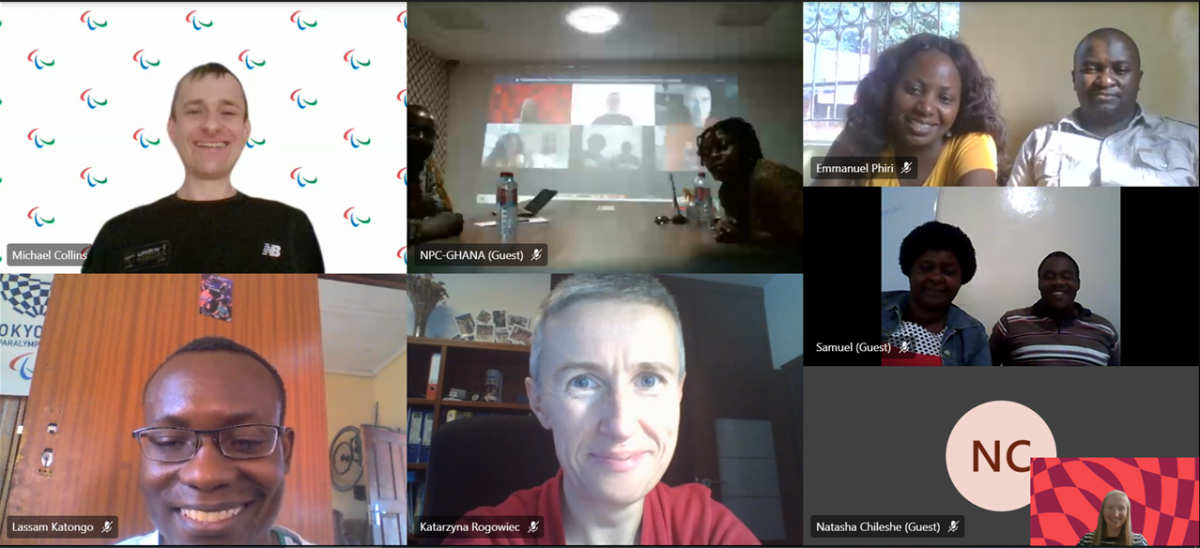
Sports Against Stigma: ImPOSSIBLE Educators on mission to overcome stigma in Africa
This particular November course was the first activity of the collaborative project Para Sport Against Stigma aiming to overcome stigma and discrimination against persons with disabilities in Africa. This project is part of the AT2030 programme.
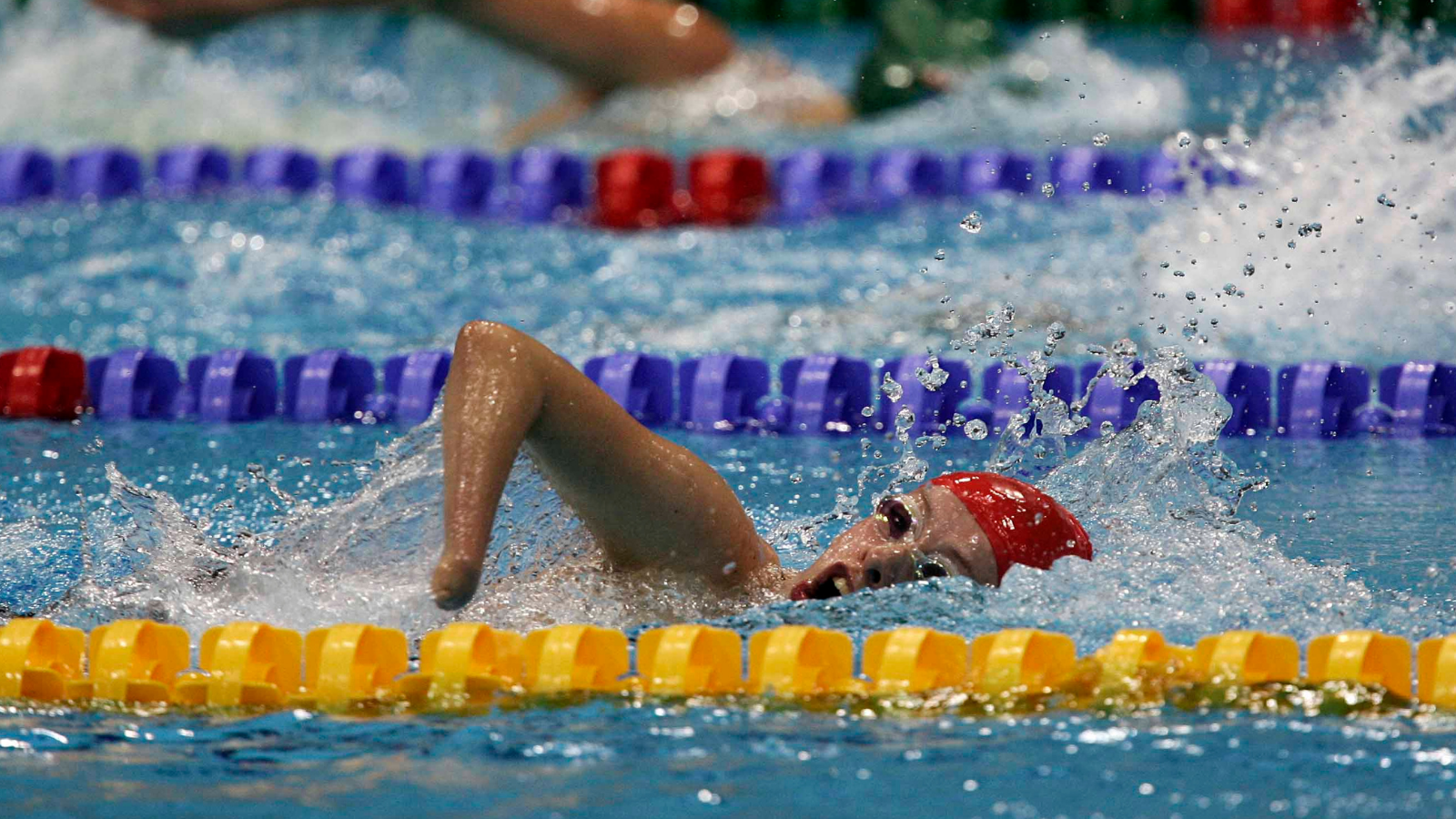
Para Sport Against Stigma: Research Report on the Tokyo 2020 Broadcasting in Sub-Saharan Africa
The AT 2030 Para Sport Against Stigma project aimed to examine how disability stigma can be overcome through Para sport so to increase assistive technology (AT) adoption in Africa. The project centred on a four-pillar approach: education, athlete development, Paralympic broadcast and cross-cutting research activity. This research report documents the research insights.
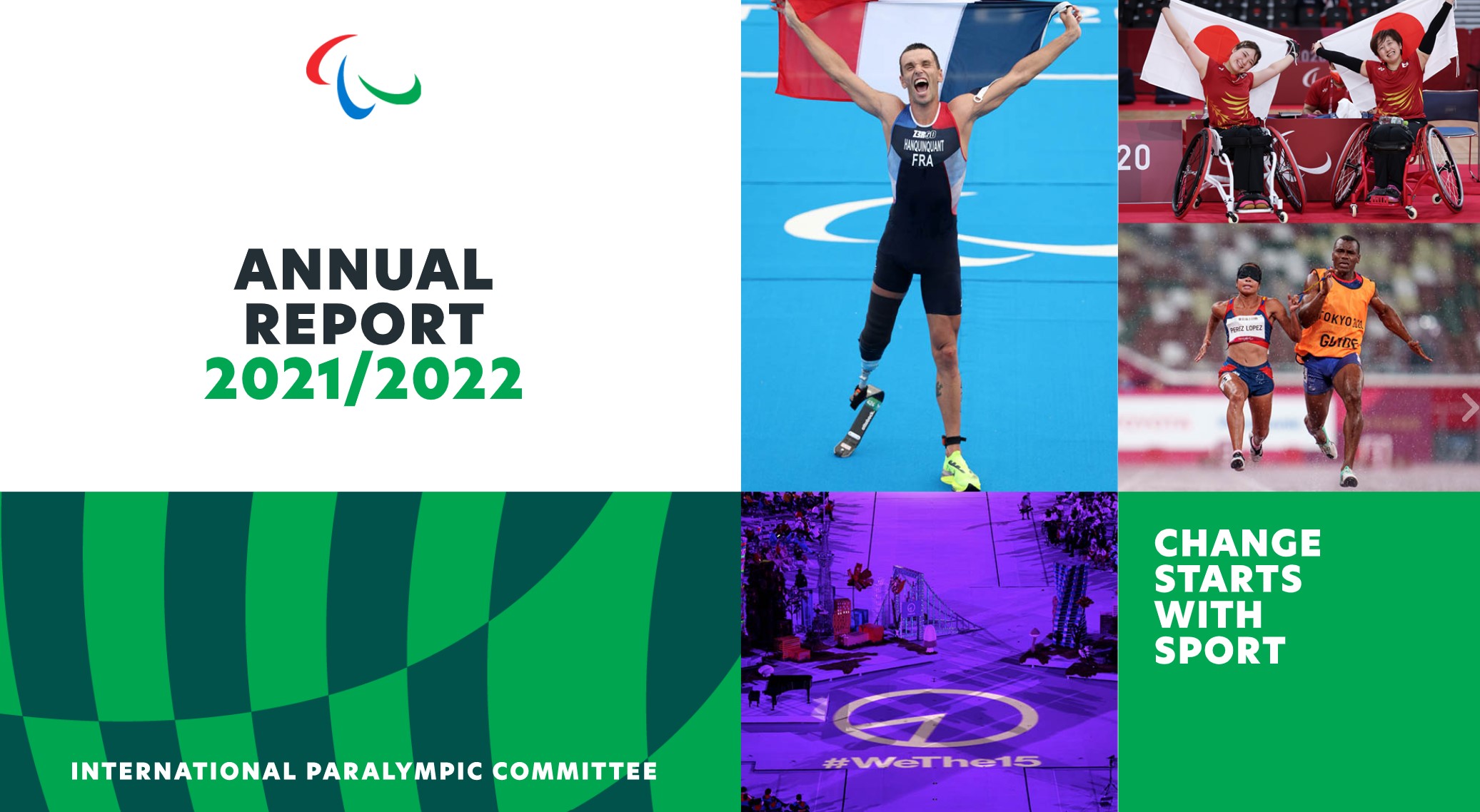
IPC Annual Report and how broadcasting the Paralympics can help tackle stigma in Africa
IPC Annual Report and how broadcasting the Paralympics can help tackle stigma in Africa - featuring more on our AT2030 Sport Against Stigma Programme, and WeThe15 - a campagin that Global Disability Innovation Hub was a co-founder.
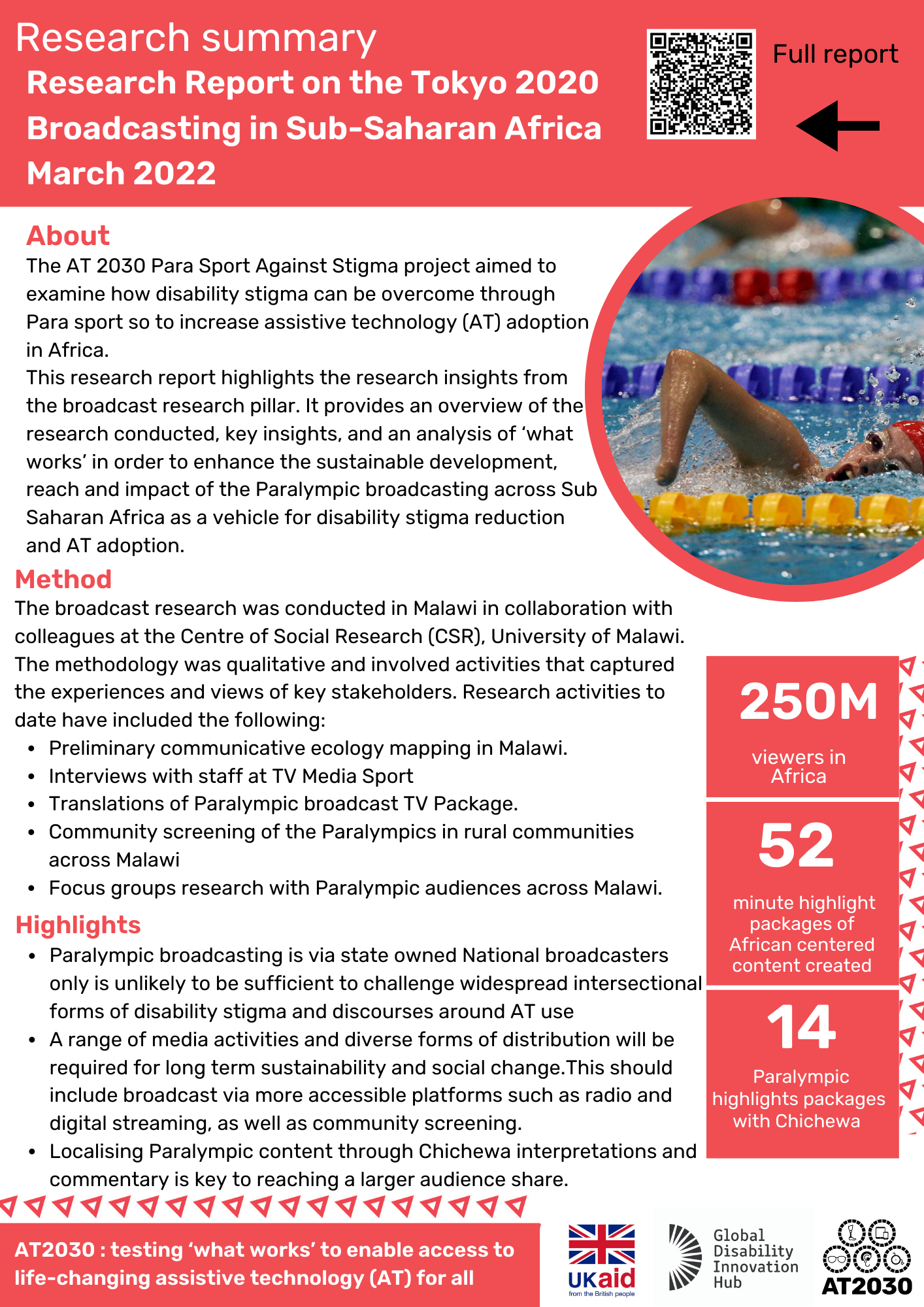
Research Report on the Tokyo 2020 Broadcasting in Sub-Saharan Africa March 2022
This research summary provides key highlights and snapshot content from the journal paper, The AT 2030 Para Sport Against Stigma project aimed to examine how disability stigma can be overcome through Para sport so to increase assistive technology (AT) adoption in Africa.

It's a Much Harder Journey: Scaling Assistive Technology Innovations to New Markets in Africa
Access to Assistive Technology (AT) in Africa is severely limited, with less than 25% of those who need AT have access to it. This paper examines three cases illustrating the journey of scaling AT innovations in African markets to enhance access. Our methodology involves within-case and across-case analyses, highlighting the significant impact of contextual factors on assistive product design and service delivery.
The potential for Assistive Tech in Africa
A blog piece by Rhys Williams and Bethany Kanten that discusses the Assistive Tech Impact Fund.
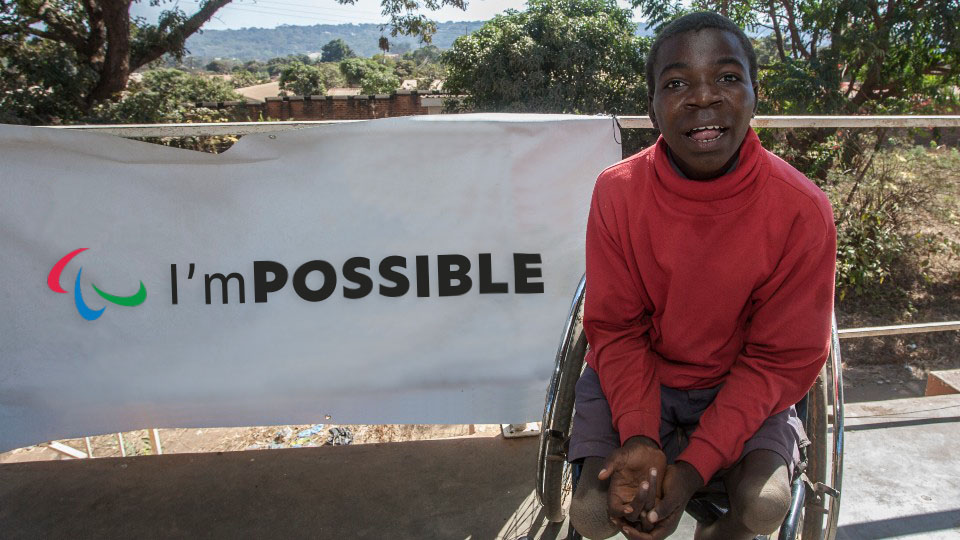
Sports Against Stigma: Loughborough University to play role in £1million+ Para Sport Against Stigma project that aims to change attitudes towards people with disabilities in Africa
The project – Para Sport Against Stigma – will investigate the use of Para sport as a catalyst for change in attitudes about disability and assistive technology (AT) in Ghana, Malawi, and Zambia.
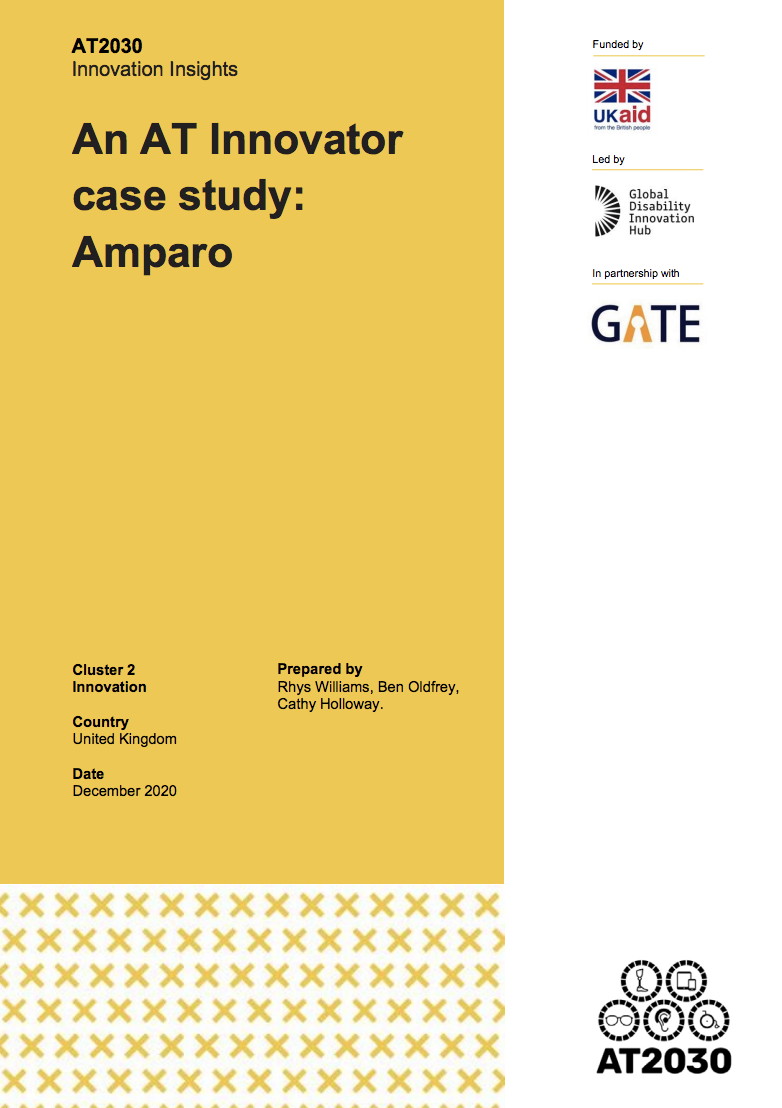
An AT Innovator Case Study: Amparo
In this innovation insight paper, we interviewed Lucas Paes de Melo, the CEO of Amparo, to discuss the journey so far of prosthetics company, Amparo. Rather than focus on the product, this insights paper provides an honest reflection of the journey to establishing an assistive technology company and delves into transferable insights. In doing so, we aim to provide insights to help current and future AT entrepreneurs to see behind the curtain of working in this space.
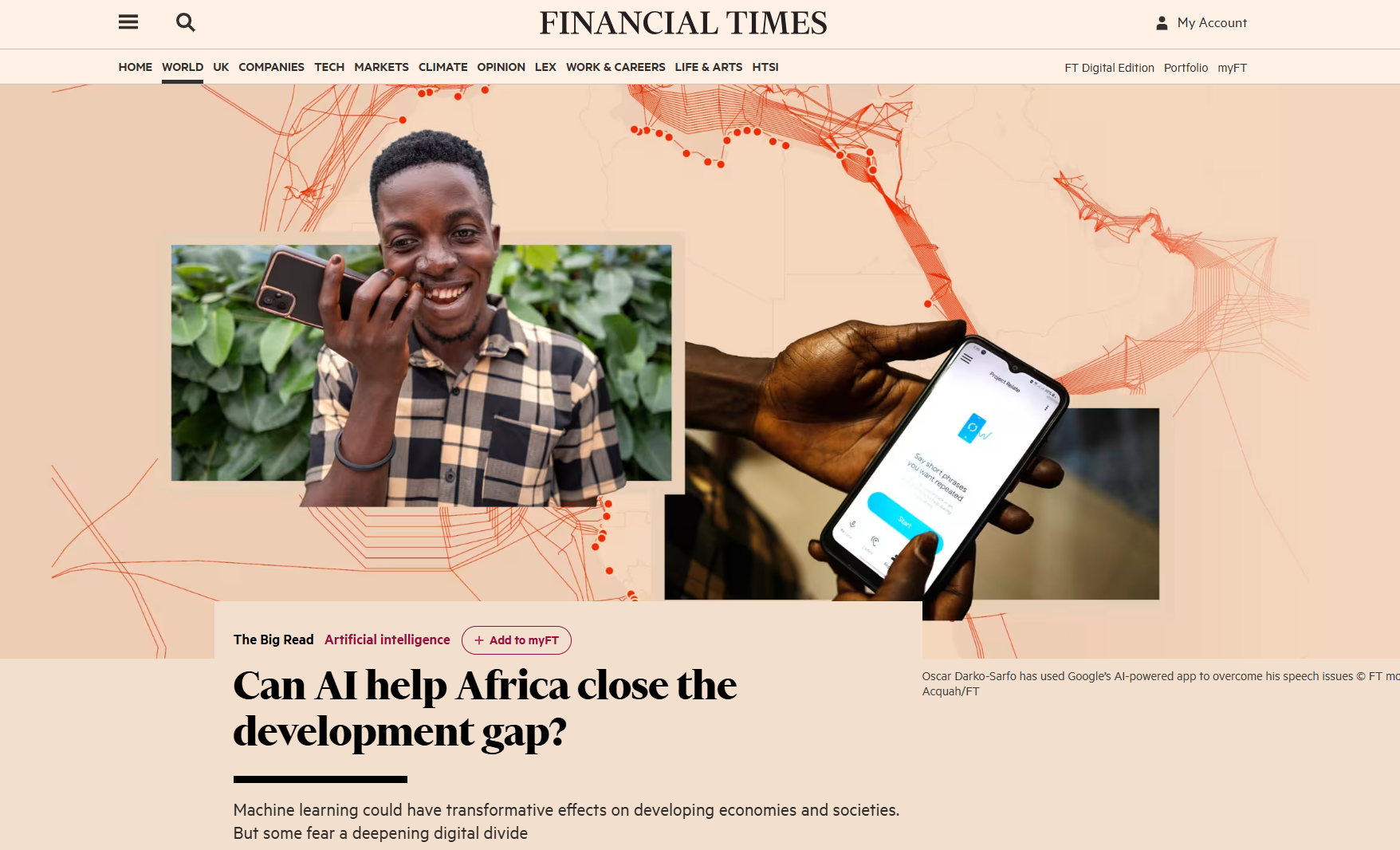
Can AI help Africa close the development gap? [financial times piece explores how our AT2030 programme has tested the google relate app]
The Financial Times piece explores how our AT2030 programme has tested the google relate app to understand how the app is currently used, how can be used and how can be improved - working alongside and training local speech and language therapists in Ghana.
AT Innovation and Impact Podcast
Welcome to the AT Innovation Podcast. In this series, we embark on a journey through the heart of Africa to explore a world where creativity and technology converge to challenge and transform our understanding of disability. We spotlight the work of Innovate Now, Africa’s first assistive technology accelerator, and the pioneering individuals behind its success. Together, we uncover how Africa's assistive technology innovation ecosystem is not just evolving but revolutionizing the way assistive technologies are perceived, developed, and adopted.
AT Innovation and Impact Podcast
This podcast is brought to you by the Global Disability Innovation Hub’s flagship AT2030 programme, funded by UKAid. In this series, we're embarking on a journey through the heart of Africa to explore a world where creativity and technology meet to challenge and change our understanding of disability. We will spotlight the incredible work of Innovate Now, Africa’s first assistive technology accelerator, and the pioneering spirits behind its success. We’ll uncover how the AT innovation ecosystem in Africa is not just evolving but also revolutionising the way assistive technologies are perceived, developed, and adopted. Innovate Now was co-founded 2019 by the Global Disability Innovation Hub and Bernard Chiira.
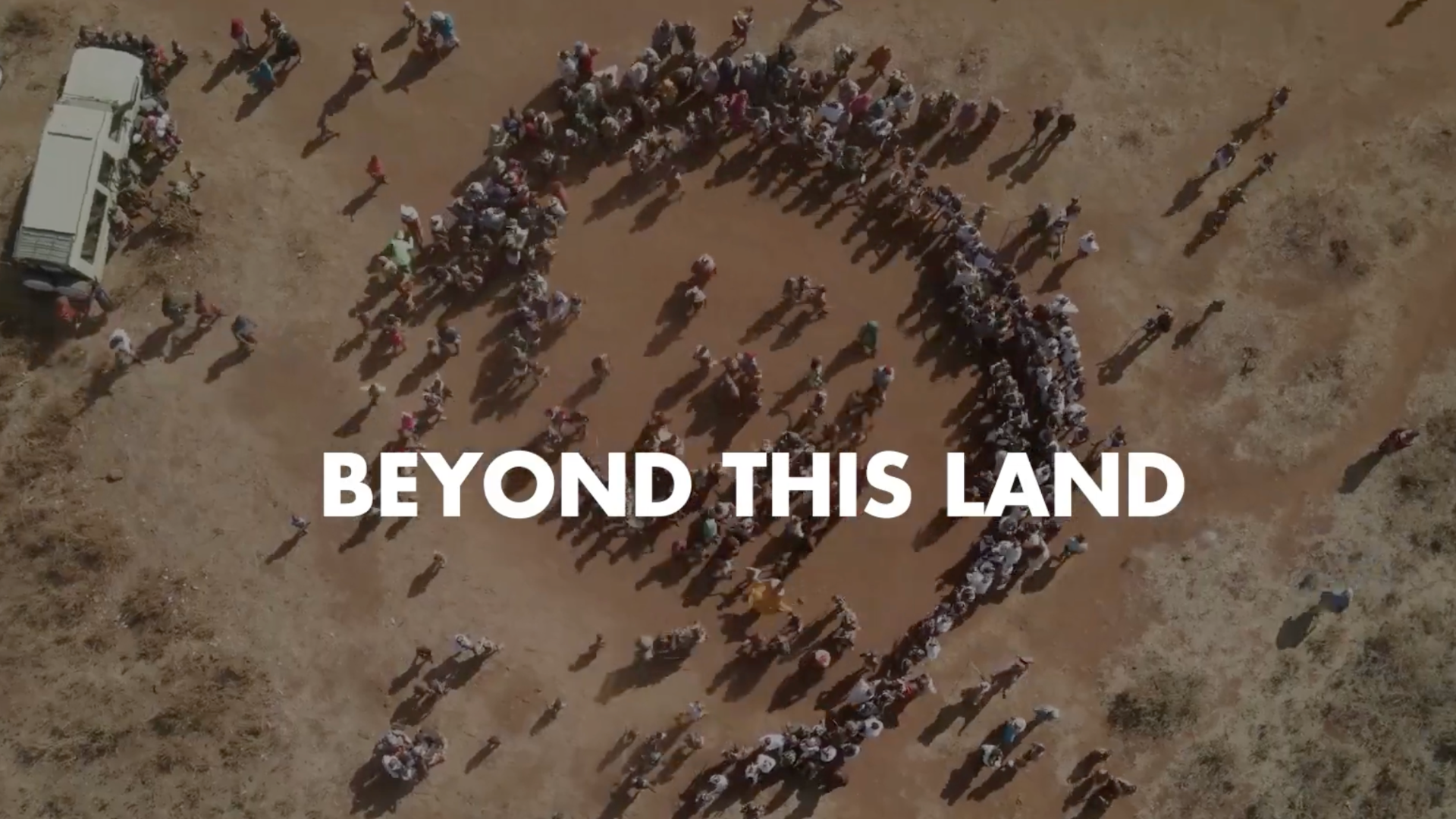
Beyond this land - attracting new audiences to Para sport
Africa remains one of the least engaged regions when it comes to disability sports and the adoption of assistive technology. Feedback from Phase One of the AT2030 Para Sport Against Stigma project highlighted a recurring misconception that disability sports are primarily a concept of the Global North, with little relevance in Africa. To challenge this narrative, and to leverage the global attention on disability sports in the lead-up to the Paris Games, we launched the #BeyondThisLand campaign - a digital initiative aimed at attracting a new and diverse audience to disability sports while increasing viewership among existing enthusiasts in Africa.